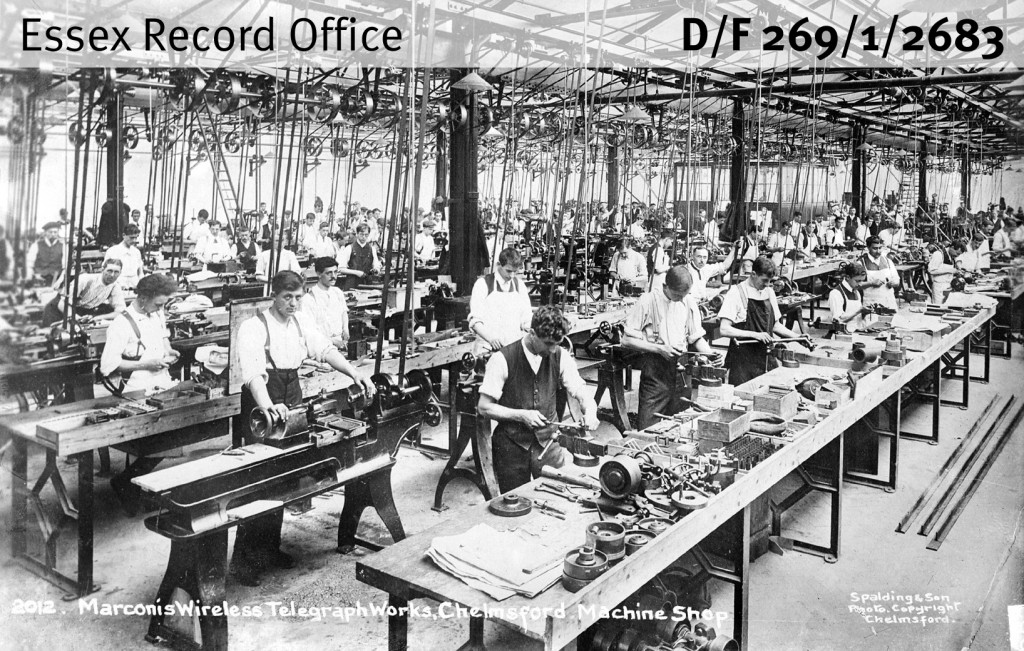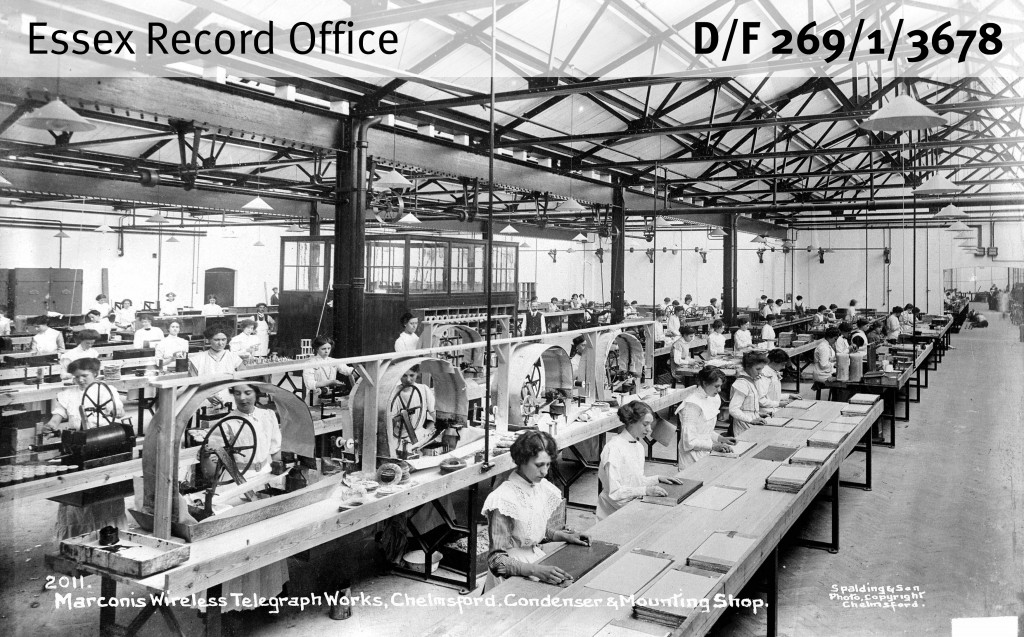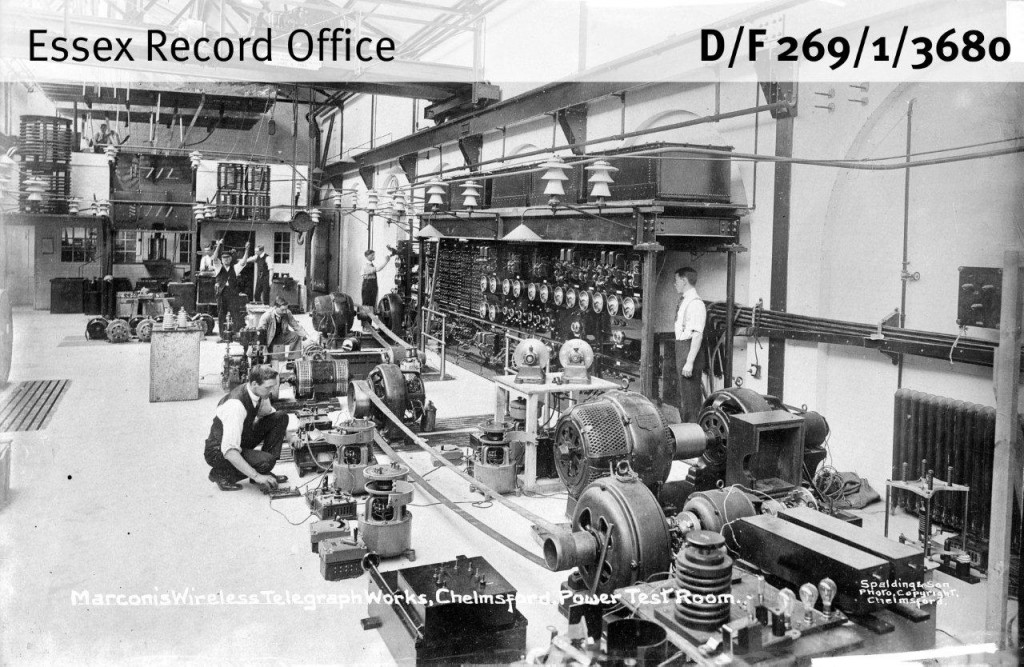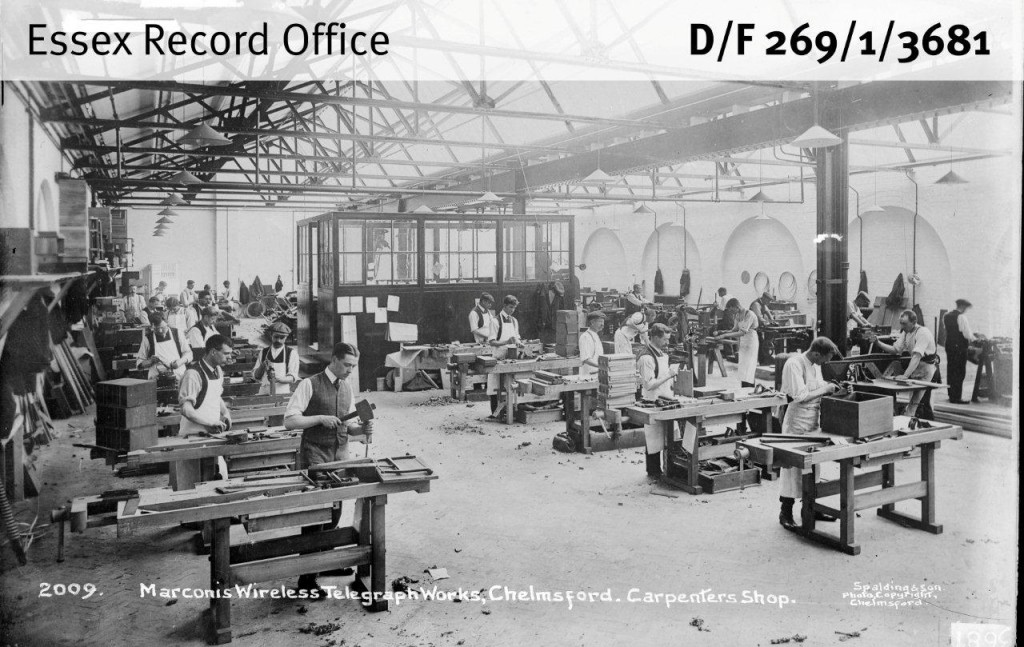On Saturday 6 July 2013 we are hosting a special one-day conference on Essex’s Industrial Archaeology.
Essex is perhaps not thought of as a typically industrial county, but industry is a fascinating part of our county’s past, and shaped the lives of the people who lived here. We have six speakers who will be covering a range of topics and roving around the county:
David Alderton: Why Industrial Archaeology?
Prof. Roy Simons OBE: Marconi, the Father of Wireless
Paul Gilman: title TBC
David Morgans: Beeleigh Steam Mill
George Courtauld: The history of Courtaulds Ltd. InEssex– the first 100 years
Tony Crosby: Industrial housing inEssex
You can find out more about some of our speakers and their talks here. Tickets are just £15 which includes refreshments and a buffet lunch.
In the run up to the conference, we will be bringing you some industrial treasures from our collections to show you some aspects of Essex’s (sometimes surprising) industrial past, beginning with a sample of photographs from our collection of Marconi’s famous New Street factory, taken by Fred Spalding soon after its opening in 1912.
Professor Roy Simons OBE will be discussing the history of this famous company at the conference. Professor Simons is a Marconi veteran himself – he began working on radar systems for the company in 1943 – and since his retirement he has researched the early history of Marconi’s. We will also be showing archive footage of Marconi’s factory shot in 1934, where you can see some of the photographs below brought to life.
Guglielmo Marconi – the ‘father of wireless’ – was an extraordinary man, and Chelmsford owes much to him and the companies he established. Marconi established the world’s first wireless factory in Hall Street in Chelmsford in 1898, but by 1912 demand for the equipment manufactured there had grown so much that the company moved to new purpose-built premises in New Street. Marconi wireless equipment was used to broadcast distress signals from the Titanic, and the first publicised entertainment radio broadcast came from the New Street factory in 1920, when the famous Dame Nellie Melba sang. The company continued to improve on voice transmissions, and later became involved in the development of television. Marconi’s also played a crucial role in developing radar, which was critical to Allied victory in the Second World War. The New Street site has now been unused for a number of years, and after much discussion is currently being redeveloped.
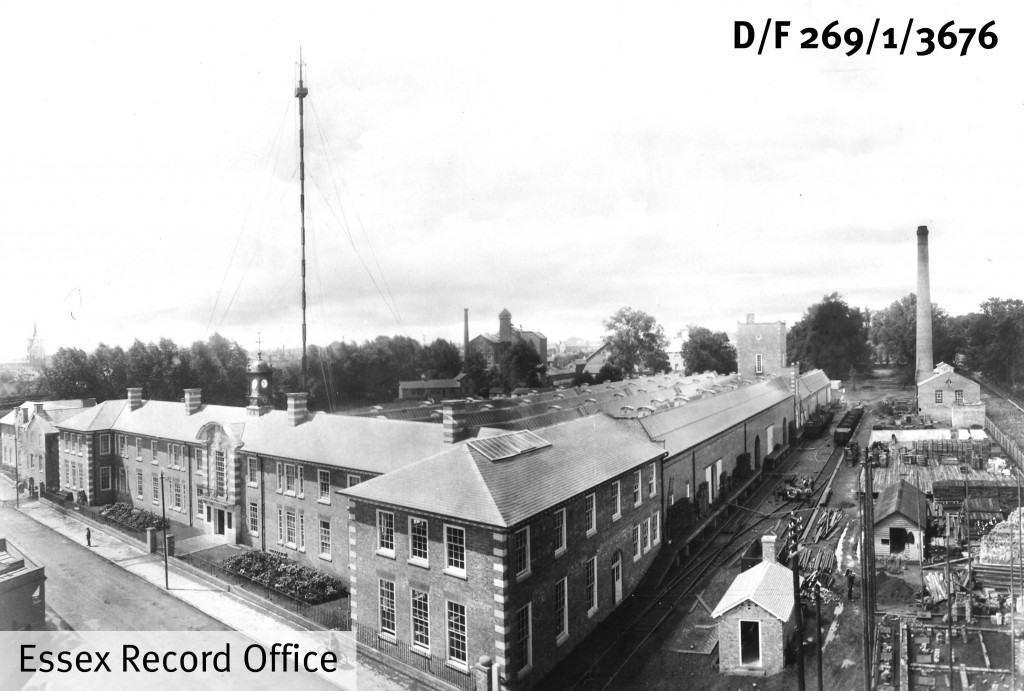
Marconi’s factory in New Street, Chelmsford, built over just 17 weeks by a workforce of over 500 people (D/F 269/1/3676)
Essex’s Industrial Archaeology
Saturday 6 July 2013, 9.30am-4.30pm
Tickets £15 – please book in advance by telephoning 01245 244614
Click here for more information

